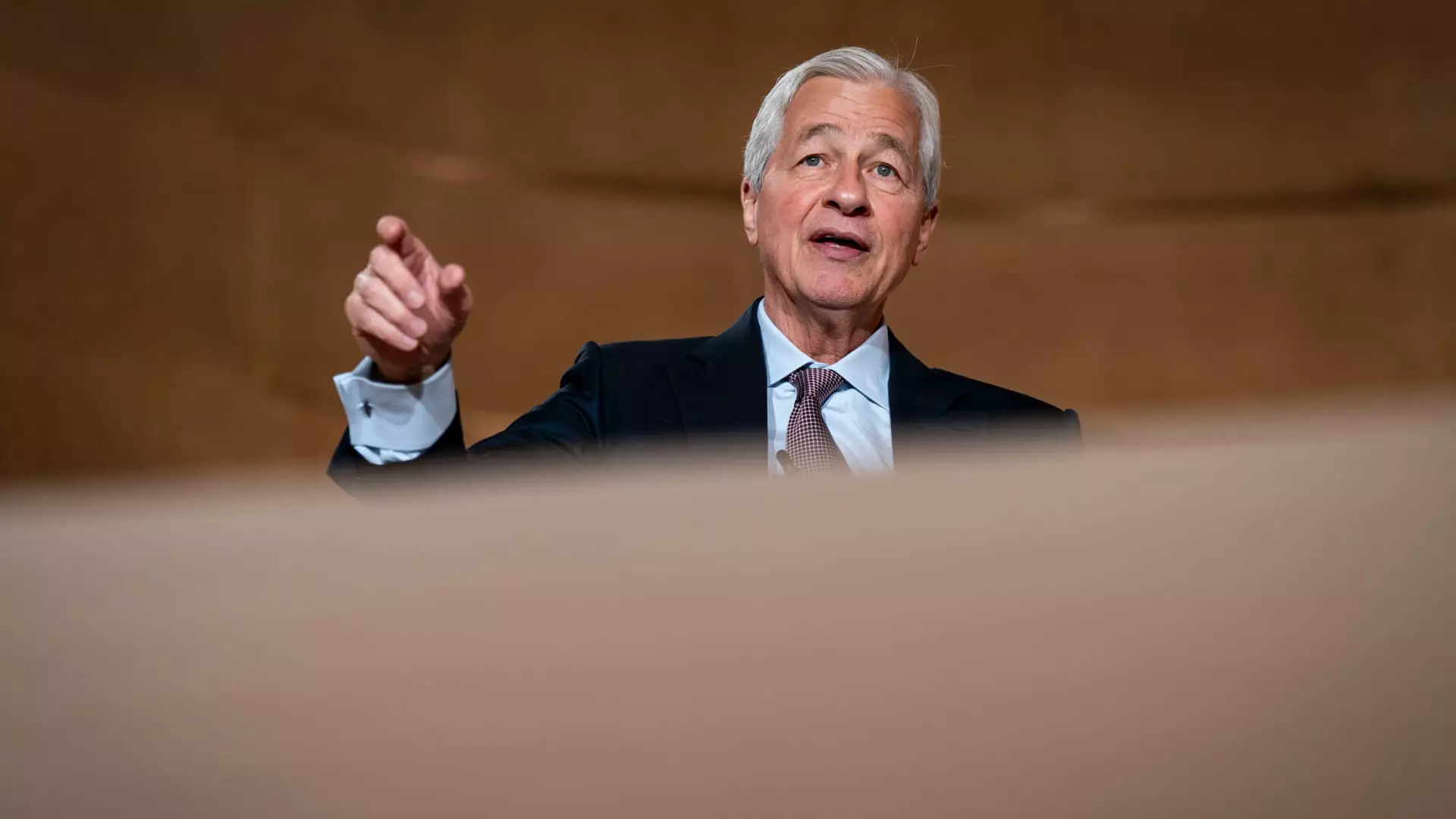JPMorgan Chase’s CEO, Jamie Dimon, recently voiced a sentiment that deserves critical attention: the financial markets and central banking systems are dangerously underestimating the volatile mix of unprecedented U.S. fiscal deficits, tariffs, and international discord. This claim, made during the bank’s annual investor day, reverberates with a needed jolt of realism in an environment that appears to thrive on complacency. It’s alarming how easily stock market investors have brushed off the ominous signs flashing across the economic horizon, preferring instead to indulge in a misplaced sense of security.
The reality of our economic situation is painfully paradoxical. While the stock market has rebounded vigorously from its low points in April, Dimon’s perspective suggests that this resurgence is not only premature but also naive. When one scrutinizes the underlying factors, such as ballooning deficits and a central banking system perceived as ‘almost complacent’, the picture becomes considerably less rosy. Investors seem to have developed a selective blindness, glossing over the risks that could derail this bull market at any moment. Ignoring these dangers is akin to tempting fate and invites dire consequences.
The Risk of Inflation and Stagflation
Dimon notably warns about rising inflation and even stagflation – a toxic combination of stagnant economic growth and inflation – believing that the markets have woefully underestimated these risks. If one were to categorize economic trends as either bullish or bearish, the current atmosphere has the hallmarks of a precarious bubble. With earnings projections for S&P 500 companies already revising downwards, Dimon predicts that we might soon see a chilling 0% earnings growth, crumbling investor confidence along with it.
The ramifications of such a decline could redefine the landscape of stock valuations. Dimon’s assertion that ‘the odds of stagflation are roughly double’ what the market perceives is haunting. It reveals a disconnect between market behavior and economic realities. This is a stark reminder of the 1970s, where stagnation amid rising prices left economies gasping for breath. Yet here we are, seemingly learning nothing from history’s lessons as the clock ticks on.
The Corporate Climate: Waiting for Clarity
Corporate sentiment reflects a similar sense of apprehension. In discussions surrounding acquisitions and investments, many corporate clients find themselves in a state of hesitation, adopting a ‘wait-and-see’ approach. This cautious stance doesn’t just reflect uncertainty; it amplifies the potential for economic stagnation. A significant drop in investment banking revenue suggests that even powerhouse firms are feeling the strain of an unpredictable economic climate. As Troy Rohrbaugh pointedly noted, expectations of a ‘mid-teens’ percentage decline in revenue underscore the precariousness looming over the industry.
Investors, CEOs, and policymakers must confront the brutal truth: we are not moving past these challenges effectively, and a piecemeal response will not suffice. The somewhat optimistic outlook from markets could prove to be a mirage that evaporates as economic conditions worsen.
The Dangers of Delayed Action
Dimon’s comments compel us to consider whether this complacency can continue unabated. History has taught us that a false sense of security can lead to disaster. If stakeholders within the market refuse to acknowledge the breadth of risks—deficits mounting, tariffs rearing their heads, and political instability festering—then we may find ourselves scrambling for answers when the bottom ultimately drops out.
Dimon himself appears poised to remain at the helm of JPMorgan, offering stable leadership in these unpredictable times. However, his eventual exit evokes questions about his successors. Will they recognize the red flags that he has illuminated? Or will they too be swept away by the current of optimism clouding judgment?
There’s an undeniable urgency in Dimon’s warnings—one that demands sound judgments in the face of rising adversity, because the repercussions of entrenched complacency in leadership and investment will resonate far beyond the walls of Wall Street. Stakeholders should prepare for a reckoning rather than bask in the false glow of security.

